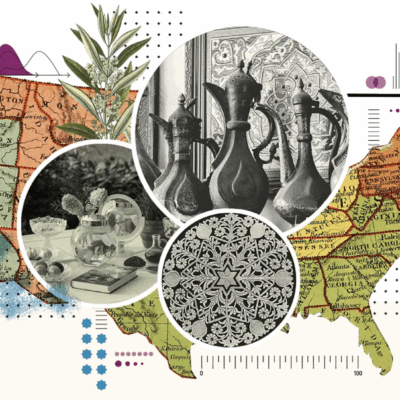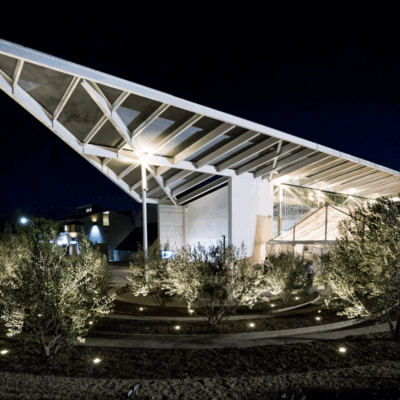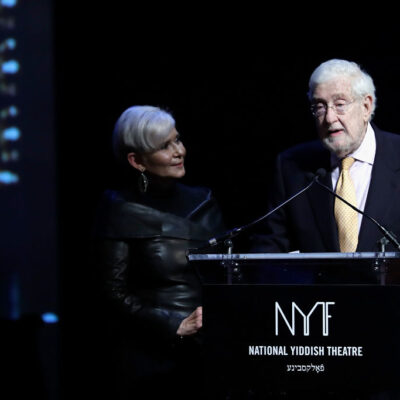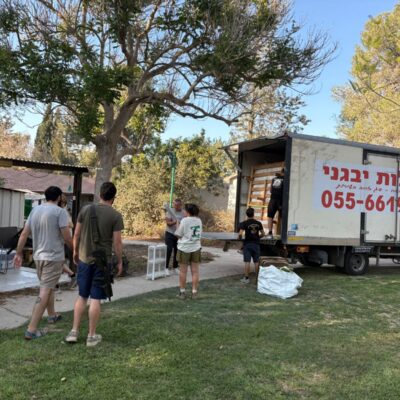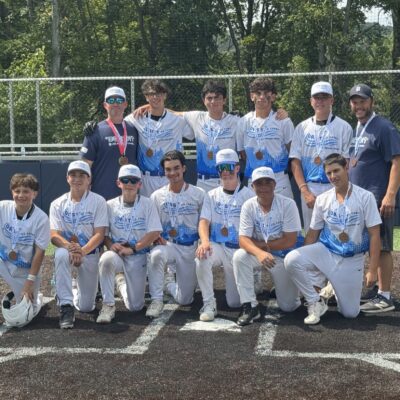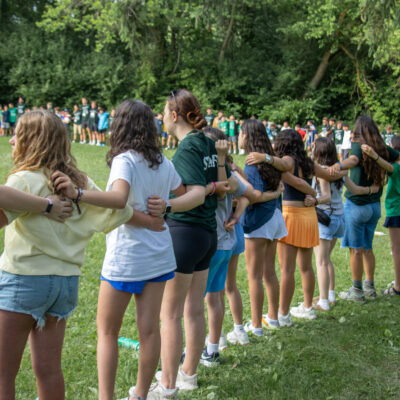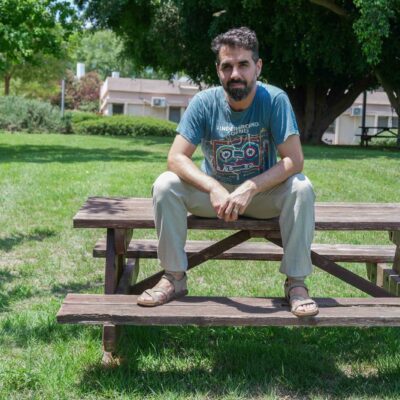Opinion
Giving circles: A powerful tool for Jewish fundraising
In Short
Giving circles are a growing and effective way to engage next-gen donors in philanthropy, build engagement and support for an organization and create community and a sense of belonging.
Jennifer Tolin, 32, wasn’t very involved with the Jewish community in Charleston, S.C., since moving there after college. She grew up in a Reform Jewish family in North Carolina, but other than spending summers at a Jewish camp, she drifted away from a connection to the Jewish community after her bat mitzvah. But when Rebecca Engel, the chief development officer for the Charleston Jewish Federation, invited Tolin to launch a young leadership giving circle, Tolin jumped at the chance to meet people and get more involved in the community through philanthropy.
A 2023 national survey found that more than half (51%) of Gen Z say they have given financially to charitable organizations. In 2022, Gen Z adults made an average of 5.3 donations, more than both the average 4.8 made by millennials and 4.7 by members of Gen X. Unlike previous generations, however, younger philanthropists are deeply invested in seeing tangible, measurable outcomes from their contributions.
This makes the giving circle an ideal vehicle for their philanthropy. Giving circles provide donors with the opportunity to donate a set amount of money to a common fund that is administered by the group as a whole. This collaborative approach not only magnifies the impact of their contributions but also engages members in the philanthropic process, fostering a sense of community and shared purpose. Group leaders like Engel guide the participants in discussions, research and voting on various charitable causes or organizations, which often involves meeting with the staff, volunteers and beneficiaries of the nonprofits.
This makes the members of giving circles much more involved in the decision-making process than traditional forms of philanthropy in which donors simply write checks. The individual members of giving circles often end up getting more involved in the organizations as donors or volunteers and typically maintain a longer-term relationship with the charities than they would if they had just written a check.
Powered by JFNA, Amplifier is an experiential learning lab for collaborative and democratized giving, rooted in Jewish values. It encourages people to give more intentionally, more meaningfully and in-community, engaging more people in tzedakah and magnifying their impact. A major focus of Amplifier’s work is training federations and other Jewish organizations to launch giving circles and supporting them at every step of the way.

Guided by Amplifier, Tolin and Engel gathered a group of 10 other local young Jewish professionals to launch their giving circle. The Charleston Jewish Federation partnered with The Jewish Endowment Foundation of South Carolina (JEFSC), which provided funds of nearly $200,000 from the Stanley B. Farbstein Endowment (which is part of both JEFSC and the Coastal Community Foundation). This partnership gave both groups the opportunity to build new relationships with this demographic.
“It was great to see connections forged with the larger Charleston community, as well as to fund specific events like the annual community Purim party that the whole community is invited to,” said Tolin. “As a result of our allocations, we helped to foster a sense of Jewish pride and celebration.” The experiment was so successful that the federation is starting a giving circle for teenagers next year, and exploring other groups to run giving circles with, including women and empty nesters.
A recent survey of the collective giving sector by the Dorothy A. Johnson Center, Colemena Consulting and Philanthropy Together, found that giving circles help shape philanthropic practices, foster social connections and amplify voices across communities. The collective giving sector has jumped to 4,000 groups contributing a total of over $3.1 billion, which is more than double just seven years ago.
Among Jewish giving circle participants in particular, the study found that 89% developed a stronger sense of belonging to a community, 82% felt a greater ability to live their values and 76% reported greater confidence to act to positively effect change.
In other words, Tolin and her peers are not the exception — they are the norm in growing their leadership as well as their connection to Jewish values and their community through giving circles. Both the Jewish Federation in San Francisco and the Jewish Federation of Utah also ran their giving circles with young leaders who were looking to be part of Jewish community and make a difference after the terrorist attacks on Israel last October.
The Charleston Federation had been planning to start a new giving circle when they heard about a Giving Circle Incubator launched by Amplifier.
It was both the push and the additional support they needed to get started. Charleston joined the Community Federation in San Francisco, the United Jewish Federation of Utah and the Jewish Federation of Greater Portland in partnership with the Oregon Jewish Community Foundation.
In San Francisco, the members of an existing Jewish group for young adults called Bay Area Tribe approached their local federation — already a leader in collaborative philanthropy — looking to make a difference in response to the Oct. 7 attacks, the ongoing war and the spike in antisemitism in the U.S. They allotted $13,000 in seed money to the group and requested each participant to contribute as well. The members of the giving circle ended up donating to multiple organizations that combat antisemitism online.
Jordana Siegel, a lay leader who chaired the San Francisco giving circle, struggled to find connection with the Jewish community after she graduated from Brown in 2020 and moved back home to the Bay Area. Her experience doing the Jewish Service Corps/Entwine in
Krakow connected her with Holocaust survivors and other needy Jews, but it was this giving circle experience that encouraged her to continue to grow in her Jewish philanthropic endeavors. She has even inspired others in the group to adopt the same commitment.
The United Jewish Federation of Utah took yet another approach to using the giving circle as a vehicle for philanthropy. Liz Paige, the federation’s associate director of fundraising, asked a board member and his wife with young children to lead the group and invite other couples to join them. Four out of the five couples had never given to a Jewish federation before, but their participation in the giving circle gave them what Paige called an “‘aha moment’ as young philanthropists.”
The group split their donation between the federation’s annual campaign and their local B’nai B’rith chapter at a public high school, where it would be used to sponsor programs to introduce non-Jewish students to Judaism.
Rebecca Engel, the federation professional in Charleston, said it is a “breath of fresh air to work with people who are insatiably curious.” She found that being part of this program made facilitating a giving circle “approachable no matter what someone’s level of knowledge [of giving circles] is. It really empowered us as Jewish educators.” She hopes to get more of the members of the community “to bring their Jewish selves to this work.”
Dara Fersel is the director of Amplifier.

